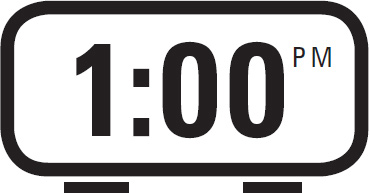

Today is the day you finally buckle down and organize all the files in your department’s shared drive. Or go to the campus library to check out books on your research project about ancient Mesopotamia. Or clean the leaves from your gutters. I mean, you know that disorganized files cost you a couple of minutes every day, that eventually you will have to learn about ancient Mesopotamia, and that if you leave the leaves through the next major rainstorm your gutters are likely to rip from the roof, potentially crushing Girl Scouts who have come to your front door to sell cookies, thus depriving you of cookies.
But you would spend more time today organizing the files than you would spend searching through them, your research paper isn’t due until after the weekend, and there is no rain in the forecast this week. And so you give in to what an article in the journal Psychological Bulletin calls “a prevalent and pernicious form of self-regulatory failure.”
Damn, that seems kind of harsh. How bad is procrastination, really?
First, it’s bad enough that when you try to study it, you find things like this: “High scorers on the procrastination scale were more likely to return their completed inventory late,” from an article in the Journal of Research in Personality. Who are these slackers whose very nature makes them difficult to evaluate in a consistent way?
They are largely the ones you would expect: disorganized, impulsive, distractible people who are likely to rate their enjoyment of projects higher when the time it takes to complete projects is lower. At least that’s the case when the project is assigned by some force beyond themselves. See, procrastinators also believe in their own self-efficacy and are motivated by factors other than achievement.
More and more, research is showing that procrastination isn’t a defect in ability but rather a disconnect between the demands of a task and what motivates the procrastinator. Procrastinators are intrinsically and not extrinsically motivated, meaning that neither tempting them with rewards nor warning them the sky will fall is likely to up their motivation to the threshold of action. Instead, the procrastinator has to want to do something. Maybe he or she would start this minute on a model of an ancient Mesopotamian ziggurat, but no amount of threatening or cajoling will make that person write a report on the same thing.
If you are the procrastinator (forsooth!), the secret to reducing your procrastination—something that 95 percent of procrastinators claim to want—is not to focus on rewards and punishments or to create new rewards and punishments, but to find aspects of a project that motivate you. No one else’s reasons will make you get to work, but discovering the aspects of a project that ring true to you will help you get started.
According to the authors of the Psychological Bulletin article, one thing is certain: “Further research on procrastination should not be delayed.”
The Carrot and the Stick
If intrinsic motivation for a project is just too hard to find, consider another mind trick to reduce procrastination: reward yourself for finishing. This is the “get your work done so that you can play” strategy. Placing a motivating task at the end of a non-motivating task can make you work to remove the block. That’s the carrot approach, but there’s also the stick: you can try imposing costly deadlines on yourself. For example, if you can’t finish by a set time, you will give $5 to a political cause you disagree with. But an article by Dan Ariely in Psychological Science shows we’re pretty bad at setting these self-imposed deadlines. When he paid students for proofreading, students who self-imposed deadlines (as opposed to working with an externally set deadline) found fewer errors and earned less of the researcher’s money. Again, people who are predisposed to procrastinate do best when they can present themselves with an internal carrot, rather than when they are presented (or present themselves) with an external stick.